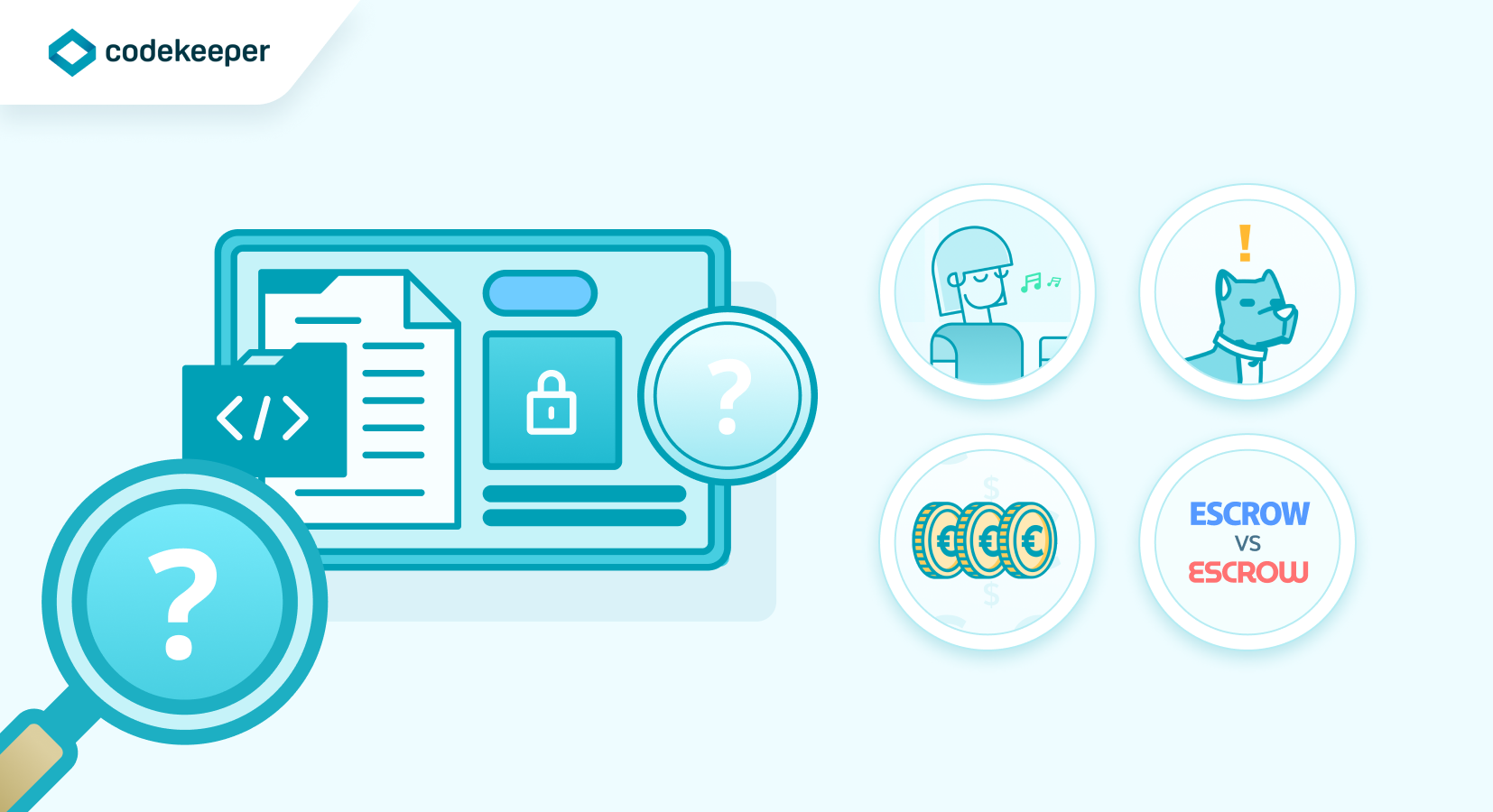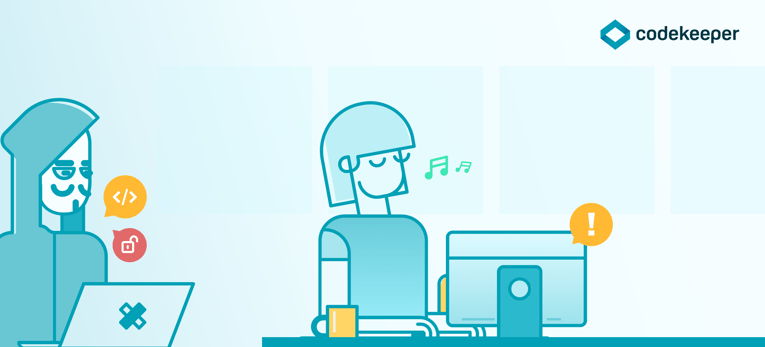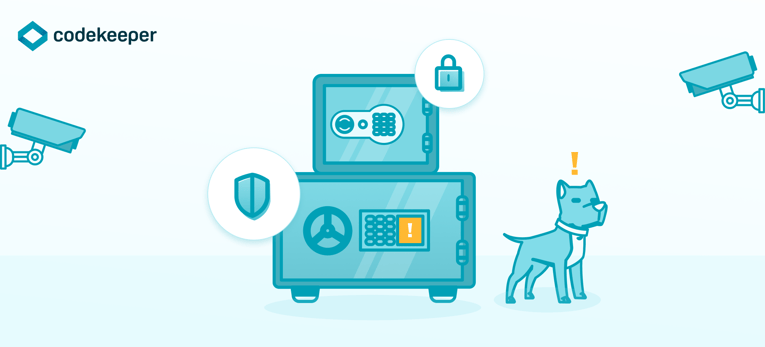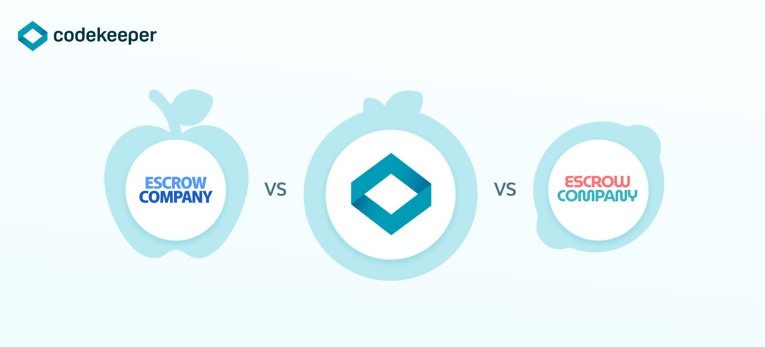Debunking Common Myths About Software Escrow
A limitation in data access could mean the failure of the entire business. This is where software escrow agreements come in, lets debunk some myths!

By JBatchelor
Table of contents:
Businesses increasingly rely on software that stores revenue-generating and highly customized data. A sudden limitation in data access could mean the failure of the entire business operation. This is where software escrow agreements come in, as they protect these data by depositing a software source code with a third-party agent. This trusted agent works to protect the developer's intellectual property while keeping a safe copy for the licensee.
If anything happens, like when a vendor can no longer support the software, the source code can be released from escrow to the licensee in order to keep their business running and give them options to move forward. Deloitte emphasizes that businesses should plan contingencies through resilience programs in order to create a proactive and agile risk capability. A software escrow is one intelligent component of a continuity strategy in an ever-changing business environment. Because developers will not part easily with their source code, having a software escrow agreement is the most effective way to overcome such an impasse.
Dwight Olson CLP, author of The Long Journey to Software Valuation, describes technology escrow as a business tool. Olson explains that it allows for a proper software valuation and protects licensing and intellectual property. Because software is an asset with substantial monetary value, businesses have an interest in protecting it from risks, much like any of their other assets. This is precisely the kind of protection that software escrows can provide.
However, despite being proven effective, many companies are still hesitant to acquire a software escrow because of misconceptions that plague the transaction. Today, we'll debunk those common myths about software escrow:

A software escrow is designed to store an application's source code, virtual machines, configuration, build instructions, and other critical documentation. A business can easily overlook or see such an agreement as an added operational cost. However, as we outlined in our post ‘Escrows as Part of Your Disaster Recovery Plan’, they need to be part of your business risk strategy. Your disaster recovery plan should include an escrow because companies should anticipate disasters before they happen instead of managing their after-effects. Escrows ensure the stability of a business by protecting critical software programs that are inevitably affected by the unpredictable industry landscape.

It is difficult to release a software escrow
One myth plaguing software escrows is that releasing the source code requires legal action. This is untrue. In fact, the main advantage of having an escrow is avoiding legal proceedings and bankruptcy. This simplifies the process of releasing the source code.
The majority of custody releases go smoothly without any need for litigation. Other parties or creditors cannot interfere with the release of the source code when the agreement is clear, plain, and transparent. Delays can be minimized, especially when the business relies on the software for its vital operations.

A software escrow is expensive.
Contrary to popular belief, software escrows are not expensive. Yes, there are substantial costs in running a sustainable service, including obtaining an escrow. On the other hand, rebuilding access to critical software is much more expensive than when the software has been protected in the first place.
This is why governments and multinational companies are making moves to establish operational resilience to avoid large-scale crises. For example, PayPal was severely affected when the cloud computing service Fastly caused an internet outage. Millions of customers were locked out of their accounts, causing a financial crisis for the company. Without an escrow agreement, businesses like PayPal would be unable to access their source code and critical documentation to ensure that their business can fulfill its obligations.

Software escrow management companies are all the same.
It's a common myth that escrow management services offer the same services. A good Source Code Escrow for Developers offers a fully developed online application that provides an all-in-one solution. This kind of service offers source code escrow as part of service level and license agreements.
The fully online process entails having log-in details to access a secure account on an escrow company's website. Further, innovations have been developed, such as integrations that enable the complete automation of the process. The escrow agreement can specify the frequency of the updates and the level of verification that both parties require.
Securing your most critical code and data is as easy as setting up a software escrow agreement. Because the rise of technology also comes with the increase of external risks, companies should ensure that their continuity strategy is in place by taking advantage of modern software escrow management services that provide long-term protection for a vital business asset.
Piece specially written for blog.codekeeper.co
Piece by: JBatchelor



